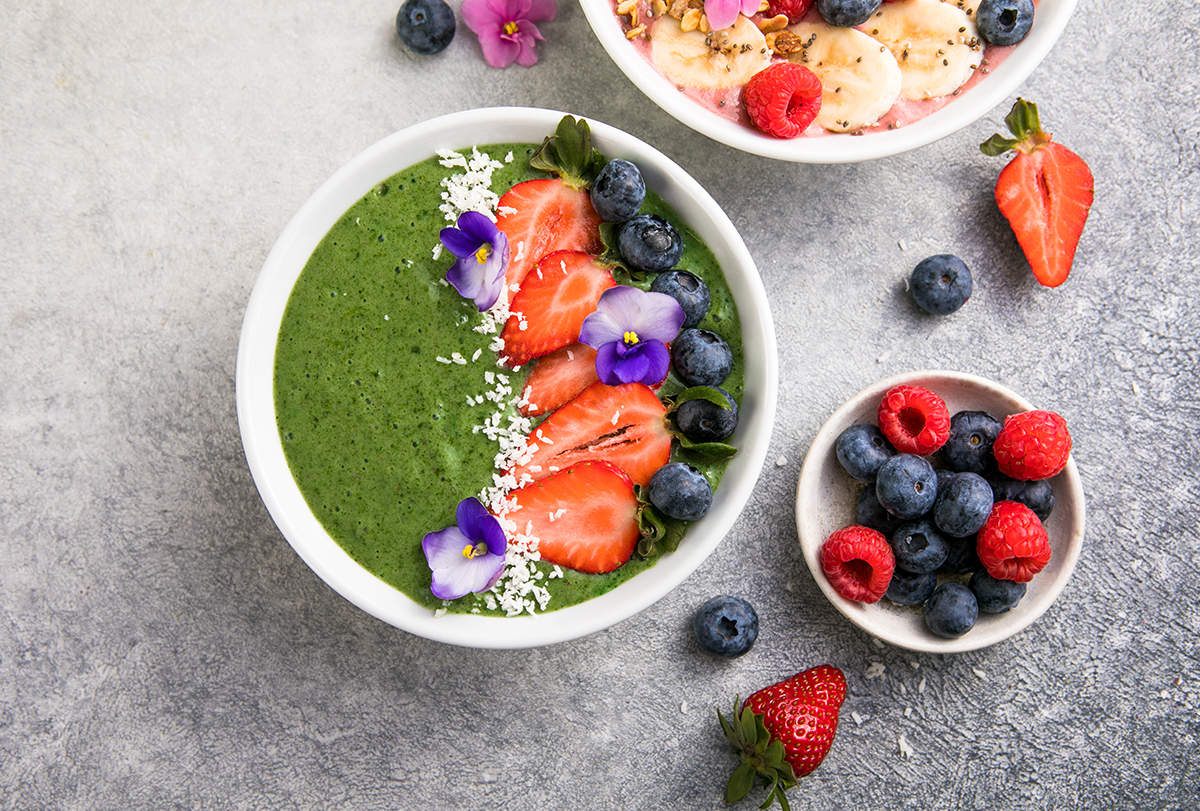In this article:
Everyone desires luscious and healthy hair. In that regard, any changes to hair, whether bad hair texture, hair loss, hair thinning, and weak and brittle hair, can severely impact self-esteem.

While most people turn to medications and treatments, the role of nutrition is often underestimated.
Though genetics, gender, and environmental stress play pivotal roles in hair growth or loss, nutrition and diet are also important factors that regulate inflammation and immunity and can override genetic influence to a certain degree as well. (1)
Phytonutrients in plant-based foods such as fruits and vegetables can have a protective effect on the hair follicles and aid in preventing oxidative damage to hair cells, which can ultimately prevent hair loss.
This article will take a deep dive into phytonutrients and the role they play in healthy hair.
Healthy Hair and Hair Loss
The process of hair growth involves muscles, blood and the lymphatic system, and nerves. The hair serves many physiological and protective roles such as regulating the body’s temperature, safeguarding against UV radiation, and protecting against physical barriers such as dust and debris. (2)
Stress, toxins through food, and the environment can cause oxidative stress and damage to these cells, which causes hair falling out more than normal (100 strands each day is considered normal), but complete hairlessness in certain areas (alopecia) can also occur. (2)
Benefits of Phytonutrients on Hair Growth

Recently, phytonutrients including epigallocatechin gallate (EGCG) from green tea, caffeine, capsaicin, onion juice, pumpkin seed oil, rosemary oil, red ginseng extract, and curcumin from turmeric have been identified for their roles in promoting hair growth and reversing alopecia. (3)
They produce such effects by lowering the inflammatory response, curbing oxidative stress, and reducing the expression of genes that induce hair loss. (1)
Newer studies have also recognized and found evidence that phytonutrients from rosemary, capsicum, garlic, and ginseng reduce hair fall and stimulate new hair growth. (4) Cosmetic industries have used these phytonutrient extracts as well as their oils in hair care products such as shampoos, hair masks, and hair oil.
Topical application of these phytonutrient extracts is more beneficial than oral consumption. However, including green leafy vegetables, berries, apples, grapes, raisins, cherries, turmeric, green tea, pumpkin seed, and rosemary in the diet can also help to reap their benefits.
Precautions to Consider
When you use oils from these foods, care must be taken as they can be extremely strong and can potentially cause scalp burns. It is necessary to consult a dermatologist to identify a safe dose and type of product suitable for you.
Practical Takeaways
- Hair loss is a major factor in low self-esteem, and many of the people who suffer from it spend a lot of money on medications and treatment.
- Nutrition plays an important role in preventing hair loss and initiating new hair growth.
- Phytonutrients from rosemary, pumpkin seed, onions, garlic, capsicum, and red ginseng protect the hair follicles from damage and initiate new hair growth to reverse alopecia or complete hair loss to a large extent.
- Was this article helpful?
- YES, THANKS!NOT REALLY


